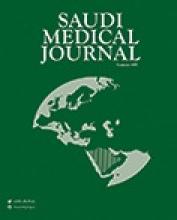2 September 2016 | GENEVA - The fourth meeting of the Emergency Committee (EC) on Zika and microcephaly convened by the Director-General under the International Health Regulations (2005) regarding microcephaly, other neurological disorders and Zika virus was held by teleconference on 1 September 2016, from 13:15 to 15:45 Central European Time.
The Committee was briefed on the implementation of the Temporary Recommendations issued by the Director-General on advice from the three previous EC meetings. The Committee was updated on the situation during and after the Olympic Games held in Brazil, the latest developments on Zika virus geographic spread, natural history, epidemiology, microcephaly and other neonatal complications associated with Zika virus, Guillain-Barré syndrome (GBS) and current knowledge on sexual transmission of Zika virus.
The following States Parties provided information on microcephaly, GBS and other neurological disorders occurring in the presence of Zika virus transmission as well as control measures being implemented: Brazil, the United States of America and Singapore.
The Committee congratulated Brazil on their successful application of appropriate public health measures during the Olympic Games. To date, there have been no reports of confirmed cases of Zika virus among people who attended the Games, both during the games and since their return. The lack of cases supports the conclusions of the risk assessment regarding the Olympic Games made during the 3rd EC meeting.
Having considered the evidence presented, the Committee agreed that due to continuing geographic expansion and considerable gaps in understanding of the virus and its consequences, Zika virus infection and its associated congenital and other neurological disorders continues to be a Public Health Emergency of International Concern (PHEIC).
The Committee restated the advice it provided to the Director-General in its previous meetings in the areas of public health research on microcephaly, other neurological disorders and Zika virus, surveillance, vector control, risk communications, clinical care, travel measures, research and product development related to vaccines, therapeutics, and laboratory tests. The Committee noted that activities based on this advice remain in place and are all being implemented. The Committee also reaffirmed its previous advice that there should be no general restrictions on travel and trade with countries, areas and/or territories with Zika virus transmission, including the cities in Brazil that will be hosting the Paralympic Games.
Furthermore, acknowledging that the impact of Zika virus is a long term concern, the Committee recommended that the Director General considers developing an appropriate infrastructure and response plan within the World Health Organization to provide longer term coordination and accountability for ensuring an effective response.
The Committee emphasized the need for a better scientific understanding of Zika virus epidemiology, clinical disease, and prevention, recommending focus on several new research issues along with other issues recommended previously, in order to:
enhance understanding of the different viral lineages, including cross reactivity and cross-immunity between them as well as their clinical implications
assess possible co-factors or risk factors that might impact disease severity
better understand the natural history of the disease in children who are congenitally infected, pregnant women, and other children and adults
determine length and location of viral persistence in humans, and its impact on transmissibility
better establish the risk of infection and modes of transmission
assess the utility of effective vector control tools and their operational feasibility
continue development of safe and effective prevention measure (e.g., vaccine)
Recognizing the impact that Zika virus disease and its consequences will have on weak health systems, the Committee also recommended that WHO provide appropriate guidance on effective surveillance and management of Zika virus disease in countries with high vulnerability, low capacity.
Based on this advice, the Director-General declared the continuation of the Public Health Emergency of International Concern (PHEIC). The Director-General reissued the Temporary Recommendations from the 2nd and the 3rd meeting of the Committee, endorsed the additional advice from the Committee’s 4th meeting, and issued them as Temporary Recommendations under the IHR (2005). The Director-General thanked the Committee Members and Advisors for their advice. The Committee will reconvene in 3 months.
Available from: http://www.who.int/mediacentre/news/statements/2016/zika-fourth-ec/en/
- Copyright: © Saudi Medical Journal
This is an open-access article distributed under the terms of the Creative Commons Attribution-Noncommercial-Share Alike 3.0 Unported, which permits unrestricted use, distribution, and reproduction in any medium, provided the original work is properly cited.






